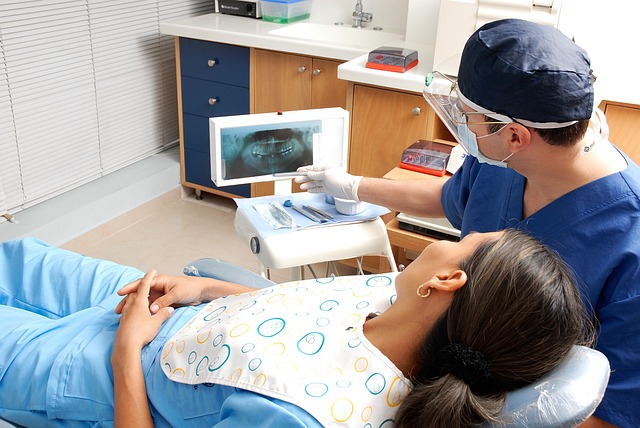Find more Dental Implants
Dental implants have revolutionized tooth replacement options, offering a permanent solution that looks and functions like natural teeth. For those considering this treatment, understanding the types of implants, specialist qualifications, and what to expect during the procedure can help make an informed decision about restoring your smile.

Dental implants represent one of the most significant advances in modern dentistry, providing a durable and natural-looking solution for missing teeth. Unlike traditional dentures or bridges, implants integrate with your jawbone to create a stable foundation for replacement teeth that can last a lifetime with proper care.
What Qualifications Should Dental Implant Specialists Have?
Choosing a qualified dental implant specialist is paramount to successful treatment outcomes. In the UK, dental implant specialists should hold a degree in dentistry from a recognised institution, be registered with the General Dental Council (GDC), and have completed additional postgraduate training in implantology. Many specialists pursue advanced certifications through organisations like the Association of Dental Implantology or complete formal residency programmes in oral and maxillofacial surgery.
Look for practitioners who regularly attend continuing education courses, as implant technology and techniques evolve rapidly. Board certification in oral surgery or periodontics provides additional assurance of expertise. Experience matters significantly – specialists who have placed hundreds or thousands of implants typically achieve better success rates than those new to the field.
How to Find Affordable Dental Implants
The cost of dental implants in the UK varies considerably based on location, complexity, and clinic reputation. Single implants typically range from £1,500 to £3,000, whilst full mouth reconstructions can cost between £15,000 and £30,000. Several strategies can help reduce costs without compromising quality.
Consider dental schools, where supervised students perform procedures at reduced rates. Some clinics offer payment plans or finance options to spread costs over time. Dental tourism to countries like Hungary or Turkey can provide savings of 50-70%, though this requires careful research into clinic credentials and post-treatment care arrangements.
| Treatment Type | UK Cost Range | Alternative Options | Estimated Savings |
|---|---|---|---|
| Single Implant | £1,500-£3,000 | Dental School Clinic | 30-40% |
| Multiple Implants | £4,000-£12,000 | Payment Plans Available | Spread over 12-60 months |
| Full Mouth Restoration | £15,000-£30,000 | Overseas Treatment | 50-70% |
| All-on-4 System | £8,000-£15,000 | Insurance Coverage | Varies by policy |
Prices, rates, or cost estimates mentioned in this article are based on the latest available information but may change over time. Independent research is advised before making financial decisions.
What Are Full Mouth Dental Implants?
Full mouth dental implants, also known as full arch restoration, replace all teeth in one or both jaws using strategically placed implants. The most common approach is the “All-on-4” or “All-on-6” technique, where four to six implants support a complete arch of prosthetic teeth.
This treatment differs from individual implants by using fewer implants to support more teeth, making it more cost-effective than replacing each tooth individually. The procedure typically requires 3-6 months for complete healing and integration, though temporary teeth can often be placed immediately after surgery.
Full mouth implants are ideal for patients with extensive tooth loss, severe gum disease, or those wearing uncomfortable dentures. The treatment restores full chewing function and provides a permanent solution that doesn’t require removal for cleaning.
How to Choose the Right Clinic for Dental Implants
Selecting the appropriate clinic involves evaluating multiple factors beyond cost alone. Research the clinic’s reputation through online reviews, patient testimonials, and before-and-after photographs. Verify that the facility uses modern equipment, including 3D imaging and computer-guided surgery systems.
Schedule consultations with multiple providers to compare treatment plans and approaches. A reputable clinic will provide detailed treatment plans, discuss risks and alternatives, and never pressure you into immediate decisions. Ask about their success rates, warranty policies, and post-treatment support.
Consider the clinic’s location and accessibility for follow-up appointments. Some treatments require multiple visits over several months, making convenience an important factor. Ensure the clinic maintains proper sterilisation protocols and follows current safety guidelines.
What to Expect with Same Day Dental Implants
Same day dental implants, also called immediate load implants, allow patients to receive implants and temporary crowns in a single appointment. This approach works best when sufficient bone density exists and no infection is present at the implant site.
The procedure begins with comprehensive imaging and treatment planning. After implant placement, temporary crowns are attached immediately, allowing patients to leave with functional teeth the same day. However, these temporary restorations require careful handling – soft foods only for several weeks whilst the implant integrates with the bone.
Not all patients qualify for same day implants. Factors like bone quality, gum health, and smoking status affect eligibility. Success rates for immediate load implants are slightly lower than traditional two-stage procedures, but the convenience factor makes them attractive for many patients.
Full integration typically takes 3-6 months, after which permanent crowns replace the temporary ones. Regular follow-up appointments monitor healing progress and ensure proper implant stability.
Dental implants offer an excellent long-term solution for tooth replacement when performed by qualified specialists using appropriate techniques. Whilst the initial investment may seem substantial, the durability and quality of life improvements often justify the cost. Take time to research providers thoroughly, understand all treatment options, and make decisions based on your specific needs and circumstances rather than cost alone.




